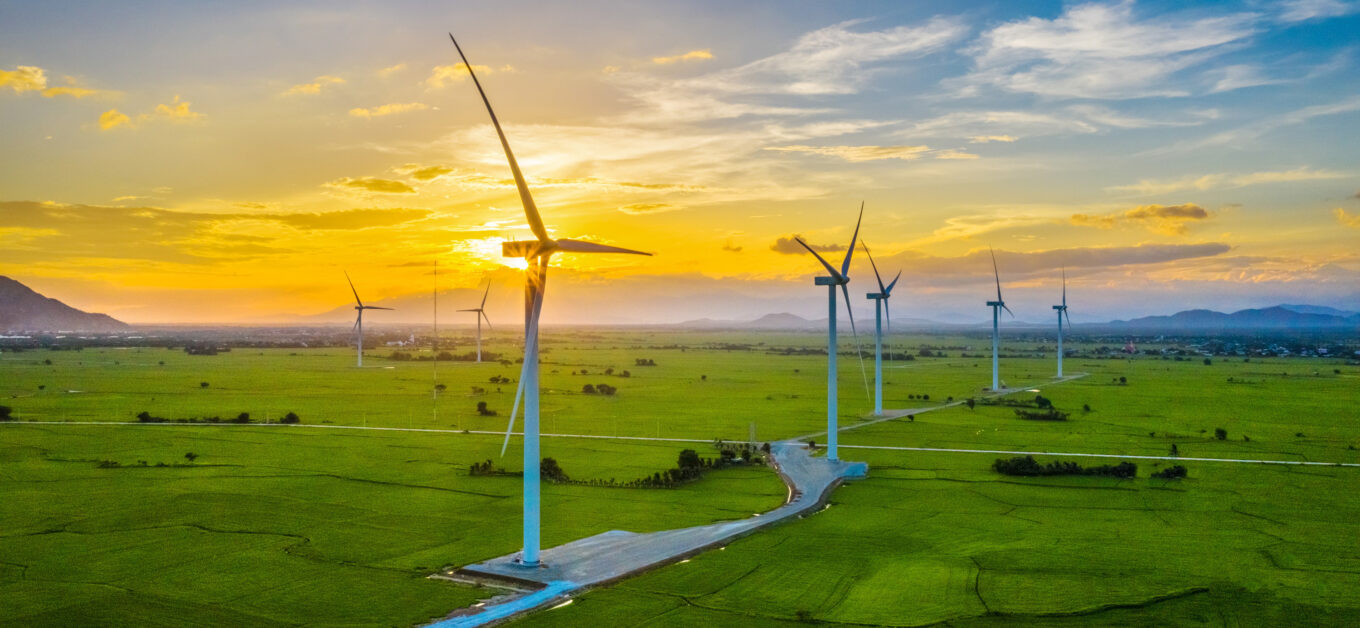The challenges for the EU’s Green Industrial Policy

In the past three years since the inception of the EU Green Deal, the road to decarbonisation has become increasingly complex. The Russian invasion of Ukraine, the energy crisis as well as the cost-of-living crisis, have made ambitious climate regulation more challenging for national industries. In response, the European Commission drafted its Green Deal Industrial Plan meant to support the industrial transition. However, three challenges might threaten this plan: political, financial, and social fragmentation.
Political fragmentation
Recently, the clearest example of political fragmentation on industrial policy was the ban on the internal combustion engine for cars and vans by 2035. The European Parliament and Council had found an agreement on this in October 2022 but Germany, followed by other Member States, refused to endorse the agreement at the last minute. Its domestic automotive industry was threatened by the new sustainability commitment and demanded flexibility for internal combustion engines running on e-fuels. While a compromise was found in the end to account for e-fuel engines by revising technical rules, the question is whether last-minute compromises in favour of national industries will be triggered on a more frequent basis, possibly slowing down vital climate legislation.
Ultimately, the Green Deal Industrial Plan will face different realities at national level, depending on whether and how the Member States’ key industries will contribute to a net-zero future. This is likely to lead to extensive discussions on the definition of net-zero industries and the necessary policy support. However, to counteract the global competitiveness challenges effectively, we must act quickly. EU leaders therefore must continue to build consensus while acknowledging their different paths to net-zero.
Financial fragmentation
Finding the financial resources needed to meet the EU’s transition objectives is not a new challenge. In 2018, a first Action Plan on financing the transition was drafted, aiming at tackling what was an estimated €180 billion yearly investment gap by 2030. With the increase of the climate target for 2030 from cutting 40% to 55% of emissions, the investment needs have risen to €1 trillion per year leading to a corresponding €356 billion yearly investment gap compared to the last decade.
Pressure stemming from the EU’s investment gap is increasing with the roll-out of the Inflation Reduction Act in the US. The Act provides generous tax breaks to net-zero sectors, leading to fears of companies shifting their investments abroad. Meanwhile, the EU remains divided on how to best mobilise resources to counteract this, with the recently published Net Zero Industry Act aiming to accelerate funding for clean tech – although the details are yet to be ironed out.
State aid has been the first mechanism put in place to accelerate funding, with the European Commission extending its Temporary Crisis and Transition Framework for another 2 years. Yet, relying on state aid only could widen divergences amongst Member States for decades to come, and remove the level playing field between companies depending on their location. The creation of a new EU Sovereignty Fund – cited as a tool to help ensure the future of industry is made in Europe – risks creating further division over the purposing of common debt.
The need to scale up private capital is clear. Whilst the EU’s sustainable finance framework is arguably in the early years of its implementation, rapid coordination will be an instrumental factor in helping the EU to build its net-zero champions.
Social fragmentation
While political and financial consensus are key to the success of the EU Green Deal, we should not forget about the immense social impact of our net-zero transition. The Green Deal Industrial Plan provides support to key net-zero sectors such as wind turbines and battery manufacturing, as well as the critical raw materials needed for their expansion. However, these sectors have their own social challenges.
For example, to produce batteries in the EU, we will need vast supplies of lithium. Interestingly, lithium deposits are available in Europe in countries such as Serbia, but continued protests are preventing extraction. Opening new mines across the continent will only be possible if sufficient social standards are implemented to convince the local population of their benefits. Nevertheless, this movement cannot stop at our borders, the EU is also focused on ensuring social responsibility when it imports these materials too, as witnessed by current legislative negotiations on due diligence.
Lastly, new materials extraction and production must be combined with a new skillset. The EU needs to foster the education of the new generation and the reskilling of workers in traditional industries that are transforming their business models. Importantly, while the EU can coordinate this effort, Member States will need to lead the way in preparing their workforce for this new reality.
Conclusion
Overcoming all these challenges will require a long-term vision, acknowledging the complexity of the transition while focusing on forging ahead together – politically, financially, and socially.
A helpful development here is the increased focus on transition plans, increasingly seen as the engine that can drive accountability and responsibility for companies across sectors. Corporate sustainability reporting and due diligence rules require companies to engage in transition planning, with the aim of enhancing comparability of progress between companies and across geographies as the rules also apply for their operations outside the EU.
In conclusion, effective communication between policymakers tasked with managing this green industrial transition and corporates and communities living the transition will be more important than ever for this Green Deal Industrial Plan to become a success.
***
About FH2050
Our FH 2050 practice combines our deeply embedded sectoral expertise across energy, industrial materials, health, transport, finance, technology, environment and chemicals, with the strength of our integrated communications and reputation management practice to help companies navigate the reputational, financial and legislative impacts associated with the transition to climate neutrality.
For more information, please contact Jane Gimber: [email protected]
-

Amélie Snijders specializes in energy and climate policy, with a special focus on renewable energy and energy efficiency. Before joining FleishmanHillard, she gained experience in the non-profit sector at The Good Lobby and Generation Climate Europe. Amélie holds a Liberal Arts & Sciences B.A. in...
-

Jane specializes in advising clients in the areas of insurance, pensions and corporate governance. Before joining FleishmanHillard, she worked as a Communications Officer for the European Mortgage Federation where she was responsible for external communications including press and media relations and event organization. Prior to...
-

Baptiste advises clients mainly on matters related to sustainable finance. Before joining FleishmanHillard, Baptiste gained experience advising clients on international trade in the CIC’s consulting branch. He also interned in a think tank focusing on sustainable and inclusive growth, helping to organize their yearly forum....
Find Out More
-
Generative AI is changing the search game
May 8, 2025
-
The challenges facing Europe and European leaders at Davos 2025
January 24, 2025


